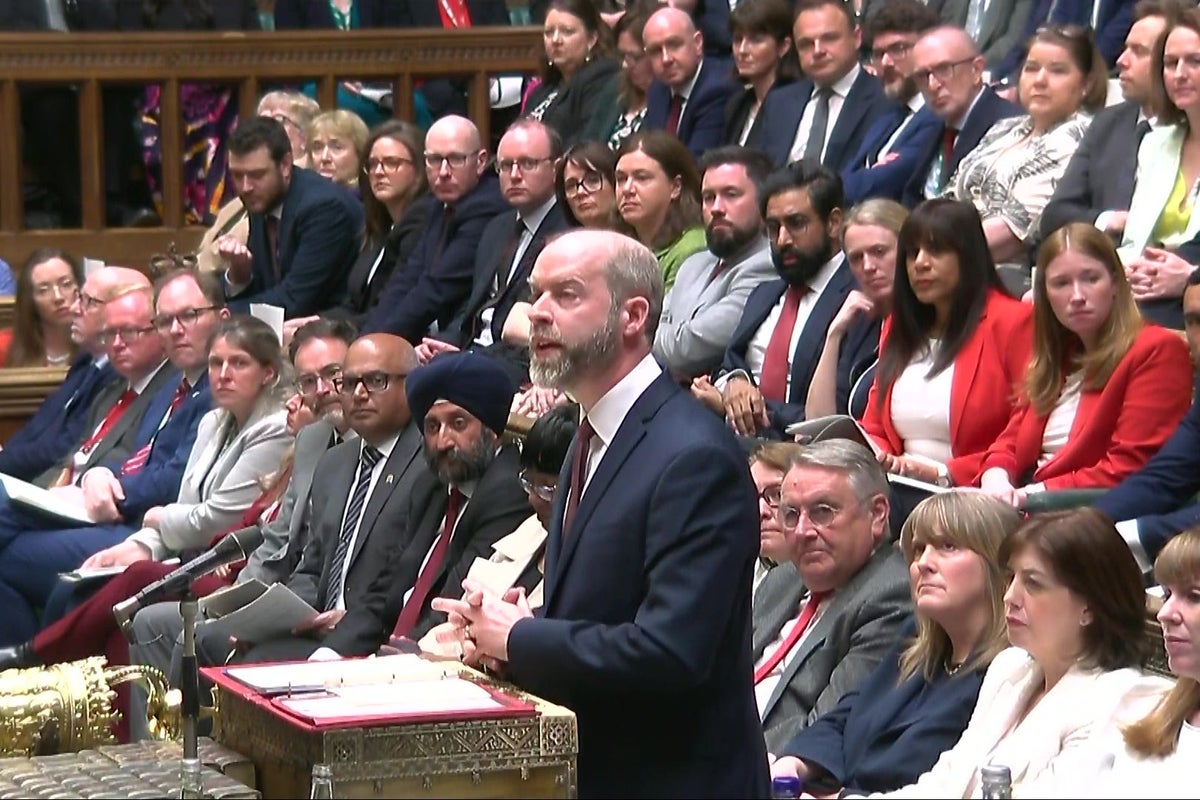The parliamentarians begin to discuss the emergency law to save the British Steel Scarthorpe plant


The commercial secretary accused the Chinese owners of British Steel of trying to close “unilaterally” Scunthorpe Blast Furnaces like Parliamentarians He started discussing emergency legislation to save the system.
Jonathan Reynolds He told the parliamentarians that the developments of the last few days had made the extraordinary session of the Parliament on Saturday necessary, since Jingye rejected the government’s support offer and took measures to end the production of steel in Scunthorpe.
He said: “Don’t do anything is not an option.
“We could not, we will not do it and we will never remain lazily while the heat infiltrates from the remaining altiforni of the United Kingdom without any planning, no right process or any respect for the consequences.
“And that’s why I needed colleagues here today.”
The parliamentarians gathered Westminster Saturday after being unexpectedly remembered by withdrawal – the first recall of Saturday by the Falklands war in 1982 – to discuss the emergency legislation intended to save the Scarthorpe factory.
The bill on the steel industry (special measures) offers the government the power to instruct the steel companies in England to keep the structures open, with criminal penalties for managers if they cannot respect.
The ministers stated that these measures were necessary to keep the upper ovens in Scunthorpe open and protect both the manufacturing capacity of the United Kingdom steel and the 3,500 jobs involved.
But the conservatives said that the government should have acted before, with the shadow leader of the Chamber Alex Burghart who accused the ministers of making “a total pork breakfast on all this agreement” while looking for “vast powers that are not seen in the legislation really in the last 40 years”.
By opening his speech by presenting the bill, Reynolds said that the government made a “substantial” offer of support for Jingye, who purchased British Steel in 2020, but that offer had been rejected.
That offer would have seen the government to buy the raw materials necessary to continue to make the steel “which would not have ensured any loss for jingye” in keeping the ovens.
But that offer was rejected, with Jingye who made a against offer that involved the government that paid to the company “hundreds of millions of pounds” without a condition to prevent money from being transferred to China and no agreement to maintain the explosions “maintained and in good order”.
Reynolds said: “Although our offer to Jingye was substantial, they wanted much more. Frankly, an excessive amount. However, we were engaged in negotiation.
“But in the last few days, it has become clear that Jingye’s intention was to refuse to buy sufficient raw materials to make the altifornians work, in fact, their intention was to cancel and refuse to pay existing orders.
“The company would therefore have irrevocably and unilaterally closed in primary steel at British Steel.”
Reynolds said that emergency legislation was a “proportionate and necessary step”, adding that he wanted it to be a “temporary position” with the powers that do not last “more than it is necessary”.
Saturday’s emergency legislation stops in short nationalization of British steel and ministers remain hopes of being able to guarantee private investments to save the system.
But talking to the BBC, Minister of Industry Sarah Jones Assuming that there were currently no companies willing to make an offer, while in Commons Mr. Reynolds recognized that public property was “the probable option”.
Ms Jones also insisted on the fact that there would be no “additional cost for the exchange” following the government actions, with the costs satisfied by a 2.5 billion pound steel steel fund announced to the budget last year.




